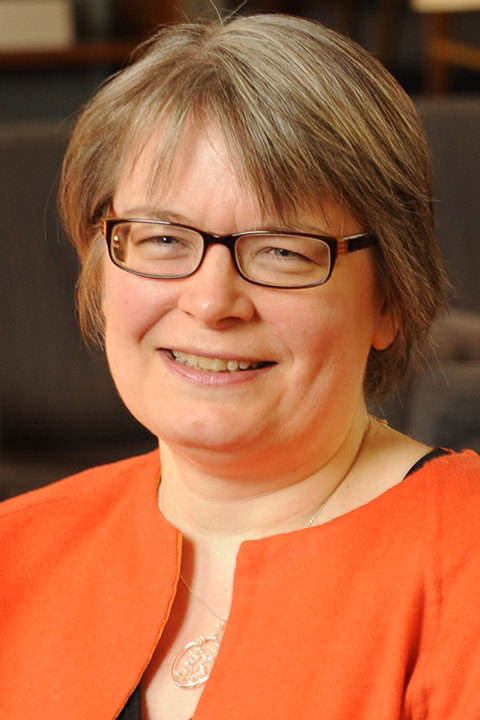British and Irish History
This document outlines the Libraries’ general policy on British and Irish history collecting, but it is not intended to be a rigid set of rules; suggestions from students and faculty are welcome. The Libraries’ collections support research and teaching on the history, historiography, interdisciplinary, and multi-disciplinary study of the regions now designated as Great Britain and Ireland from prehistoric times through the present day.
Columbia University has been eminent for teaching and research in history ever since the mid-19th century, when history as a discipline began to take on a recognizably modern form in American universities. In the latter part of the 19th century, the Libraries made a concerted effort to expand the base of materials it was acquiring in support of the Columbia curriculum. Columbia’s Department of History was founded in 1896.
A certain level of complexity has necessarily always been involved in building collections that support research in British history. Britain’s commercial and colonial ventures involved it with a wide range of countries and regions across the globe. Thus a key online resource such as the East India Company records is vital not only to the understanding of Britain itself, but also to the understanding of those countries or regions in which Britain’s East India Company operated, namely South Asia, Southeast Asia, China, Japan, and the Middle East. The Libraries’ ongoing commitment to building strong British history collections are necessarily involved with and supportive of its commitment to building strong collections in support of global history. Colonial history remains a vital area of transnational historical study and plays an important role in the more recently developed academic field of postcolonial studies.
Massive online corpora of primary sources in full-text digital facsimile format include Early English Books Online, Eighteenth Century Collections Online, and Nineteenth Century Collections Online. The British periodical press is extensively represented in Gale NewsVault, with content spanning the 17th through the early 21st centuries. British government is represented in resources such as the U.K. Parliamentary Papers.
The Rare Book & Manuscript Library (RBML) holds some significant collections relevant to research in British history. These include the Seligman collection on the history of economics, with a historic span that extends from the 15th century through the 1920s. The George Arthur Plimpton Library includes medieval and Renaissance manuscripts relevant to British history and literature.
The bulk of materials relating to British and Irish history are acquired for Butler Library. Relevant materials in the social sciences and in the area of recent international relations are housed in the Lehman Social Sciences Library; works in religious history and theology are located at the Burke Library at Union Theological Seminary; works on art history, architecture, and urban planning are at the Avery Architectural & Fine Arts Library; works on music materials may be found at the Gabe M. Wiener Music & Arts Library. All of these libraries keep some portion of their collections at the Libraries’ shared off-site storage facility (ReCAP).
a. Undergraduate
Department of History majors and minors; Columbia College (CC), School of Engineering and Applied Science (SEAS), and General Studies (GS) students enrolled in British or Irish history courses; students with a major or concentration in the Departments of Middle Eastern, South Asian, and African Studies.
b. Graduate and Professional Schools
MA and PhD students in the Department of History; students in the BA/MA or MA in European History, Politics, and Society programs; students in the MA/MSc in International and World History programs, jointly offered by Columbia and the London School of Economics; MA and PhD students in the Department of Middle Eastern, South Asian, and African Studies; MA and PhD students in the Department of English and Comparative Literature.
c. Institutes, Interdisciplinary Programs, etc.
European Institute; Heyman Center for the Humanities; Institute for Comparative Literature and Society; Institute for Research on Women, Gender, and Sexuality.
d. Course Reserves
Selection for course reserves is up to individual faculty members. The Librarian will do whatever is possible to secure specific materials absent from the collection.
a. Print
Current publications in British and Irish history are collected in substantial breadth and depth. While thoroughness is aimed for in acquiring the relevant output of most British and American university presses, titles published by trade presses are collected more selectively. The Librarian also collects materials that focus on the activities, practices, or structures of the British Empire. Materials that focus on specific countries or regions that have been under British colonial rule are collected by relevant Global Studies librarians or the East Asian Studies Librarian.
b. Digital Collections
Massive online corpora of primary sources in full-text digital facsimile format include Early English Books Online, Eighteenth Century Collections Online, and Nineteenth Century Collections Online. The British periodical press is extensively represented in considerable historical depth through resources such as Eighteenth Century Journals, Gale NewsVault, and Periodicals Archive Online. Irish Newspaper Archives provides access to substantial content from titles north and south of the Irish border from 1738 to the present.
British government is represented in State Papers Online: Early Modern Government in Britain and Europe and in the U.K. Parliamentary Papers. Archives Direct: Sources from The National Archives, UK is a major resource for British and global history, providing access to confidential print and foreign office files for a wide range of world regions.
Extensive access to sources related to economics, labor, finance, commerce, and agriculture around the world, from the 15th century through 1914, can be found in The Making of the Modern World. A large number of the titles included are British or Irish publications.
c. Media
A significant collection of British feature films is available on DVD and VHS in the Butler Media Collection. The Librarian for Butler Media, Film Studies & Performing Arts is primarily responsible for collecting in this area. Nineteenth Century Collections Online is substantially British in its source focus and includes modules devoted to maps and photography. ARTstor provides extensive access to images from art, architecture, and various forms of visual culture from around the world. Also international in scope, AP Images provides photographs, audio sound bites, graphics, and text from the Associated Press, one of the oldest and largest news organizations in the world. The Music & Arts Library maintains impressive collections of audio recordings of works by British and Irish composers as well as scholarship about them.
d. Languages Collected
Primary source materials are collected in English, Old English, Middle English, Irish, Scots, and Welsh, whatever languages they were originally published in, and/or in English translation. Secondary literature is not systematically collected in languages other than English.
e. Chronological Focus
Prehistoric times through the present day.
f. Geographical Focus
Great Britain and Ireland are core areas of focus. Materials concerning the British Empire may deal with any region or country that has been part of that empire.
g. Imprint Dates Collected
The main focus of collecting is current and recent (+/- three years) imprints. When antiquarian acquisitions are offered via gift or purchase, no specific chronological ranges are established in advance; rare or unique materials from any period may be considered.
The Rare Book & Manuscript Library (RBML) holds a number of collections relevant to research in British history. In 1929, RBML acquired the internationally-known library on the history of economics that had been collected by Professor Edwin R. A. Seligman. The historic span of this collection extends from the 15th century through the 1920s. The George Arthur Plimpton Library includes medieval and Renaissance manuscripts relevant to British history and literature. The Montgomery Library of Accountancy consists of manuscript account books and documents that illustrate and document the history of accounting and business procedures from the 14th century into the 20th century. The majority of the manuscripts are English and American English and date to the 17th, 18th, and 19th centuries.
For inquiries about the status or nature of current RBML collecting in the field of British History, please contact: rbml@library.columbia.edu
a. Consortia and Collaborative Collecting with Other Institutions
The range of print materials focusing in the subject fields of British and Irish history is greatly enhanced by Columbia’s participation, with Harvard University, Princeton University, and The New York Public Library, in a shared off-site storage facility (ReCAP); Borrow Direct; and the Manhattan Research Library Initiative (MaRLI), a partnership with New York University and The New York Public Library.
b. Location Decisions and Selection for ReCAP
Most current publications (+/- three years) for British and Irish history are sent directly to the Butler stacks. After a specified period of non-circulation (currently five years), titles become identified as candidates for transfer to the Libraries’ shared off-site storage facility (ReCAP). The Librarian reviews lists of ReCAP candidates exercising the ability to override automatic transfer of any given title to ReCAP. Review is done with the aim of maintaining a reasonable on-site browsing collection. Older titles in the Butler stacks are also identified as candidates for transfer to ReCAP through the same criterion of circulation inactivity. These transfer lists are also reviewed by the Librarian. With older titles, keeping works of known ongoing importance in the Butler stacks is a priority.
Duplication of recent publications (+/- ten years) is generally limited to works identified by faculty as being central to a specific course. In these cases, no more than a few copies are obtained, one of which should be placed by the faculty member on reserve. Works in demonstrated high demand that are unavailable in e-book format may also be considered for duplication in print.
Deduplication only takes place when a title has been identified for relocation to ReCAP and a copy already exists on shelf at that facility. Even in this instance, the Librarian will inspect the local copy for any unique features, unusual provenance, or more general artifactual significance, before assenting to deduplication.
c. Deaccessioning
Titles are deaccessioned only in cases where the physical copy is disintegrating and no longer serviceable in print format. In these instances, a reprint may be acquired, a preservation photocopy made, or a digital surrogate created or obtained. Books located in RBML are not deaccessioned.
d. Digitization and Preservation
The Libraries’ Preservation & Digital Conversion Division (PDCD) regularly evaluates materials in the collections for preservation and digitization. Materials digitized by PDCD are accessible through CLIO, the Libraries’ online catalog, and are also made accessible through Google Books or the Internet Archive.

John L. Tofanelli
British and American History and Literature Librarian
- Humanities & History

Jane Siegel
Rare Book Librarian
- Rare Book & Manuscript Library
Last updated: January 2019